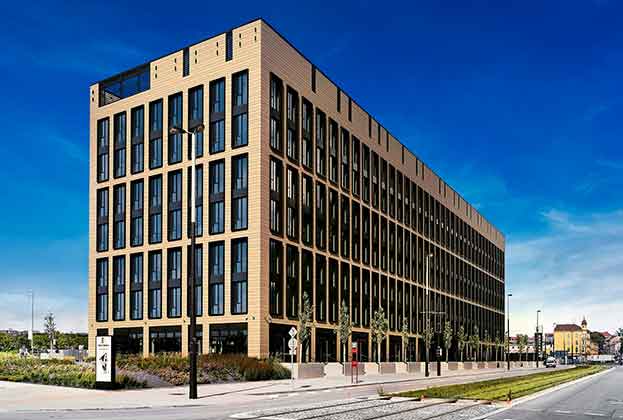Macro indicators point to increased demand for office space
Slowing growth
Economic Overview
2019 has been the year of uncertainty that many had been certain of. Euro Area economic growth is forecast to reach 1.1% for full-year 2019, with 1.0% in 2020, according to Focus Economics, as some of Europe’s largest economies edge closer to a recession. However, the services sector, more closely linked to the office sector continues to surprise on the upside, with European service sector PMIs (Purchasing Managers’ Indices) remaining positive.
Global macro concerns continue to weigh in on European growth – the US Fed cut rates for the third time this year in October’s meeting, following news that the world’s largest economy grew at an annualised rate of 2% in Q3 2019.
Brexit uncertainty has played to the strength of the US dollar in 2019, as the ECB (European Central Bank) has lowered savings rates to record low rates, which has created an opportunity for non-European investors to acquire CBD offices at a discount. Lending rates on strong covenants in core office markets have frequently dipped below 1%.
The UK’s long-awaited departure from the EU has since been extended for a second time to 31st January, with the UK General Election planned for 12th December. New hope surrounding an improved trade deal has since boosted the pound sterling from $1.20 in August to $1.29 in November. With the ECB expected to lower borrowing rates again in 2020, we expect sustained investor demand for bond-like assets in the shape of long-leased, CBD offices. Into 2020, the waters remain muddied, due to global growth concerns, slowing growth in China, stagnant domestic growth and US-China trade wars influencing European exports.
The strongest rate of growth will be witnessed in the professional, science and tech sector (7.4%) and information and communication sector (5.6%) over the next five years
Savills Research
We should also take note of the record low unemployment rate in the EU28, which currently stands at 6.2%, down from 6.6% at the end of 2018. Indeed, over the next five years, Oxford Economics forecast 3.1 million net additional office-based jobs to be created across Europe, representing 3.9% growth. This points to a need for a further 31 million sq m across the European CBD markets at a 1:10 ratio. The strongest rate of growth will be witnessed in the professional, science and tech sector (7.4%) and information and communication sector (5.6%) over the next five years.
However, occupational decision-making has not been largely affected by uncertainty, as many had expected – the rumours of mass international relocations have quietened throughout the course of 2019. Job growth will be more organically driven across Europe, with outperforming Nordic countries expected to experience the strongest figures.
Read the articles within European Offices Outlook below.
.jpg)





